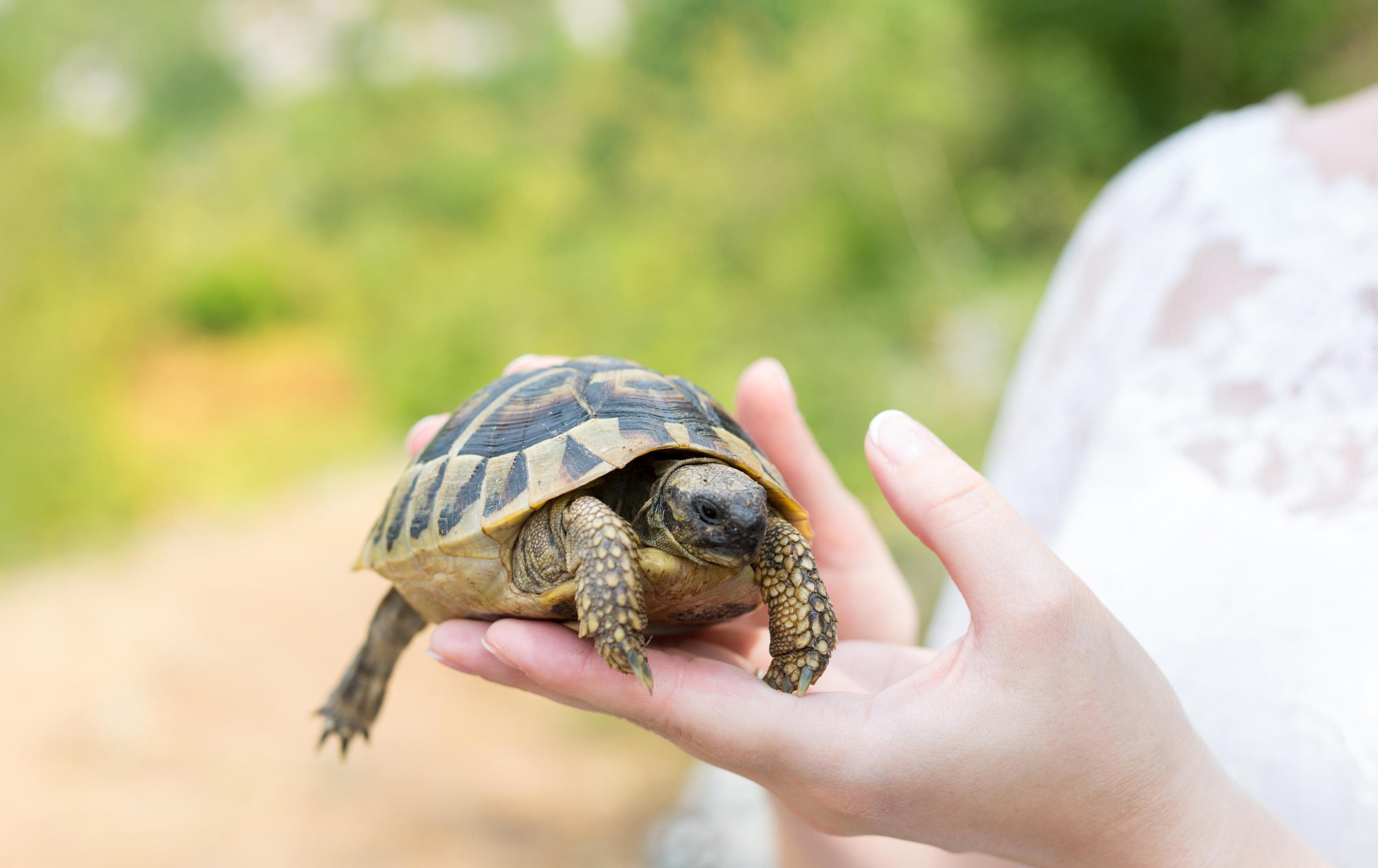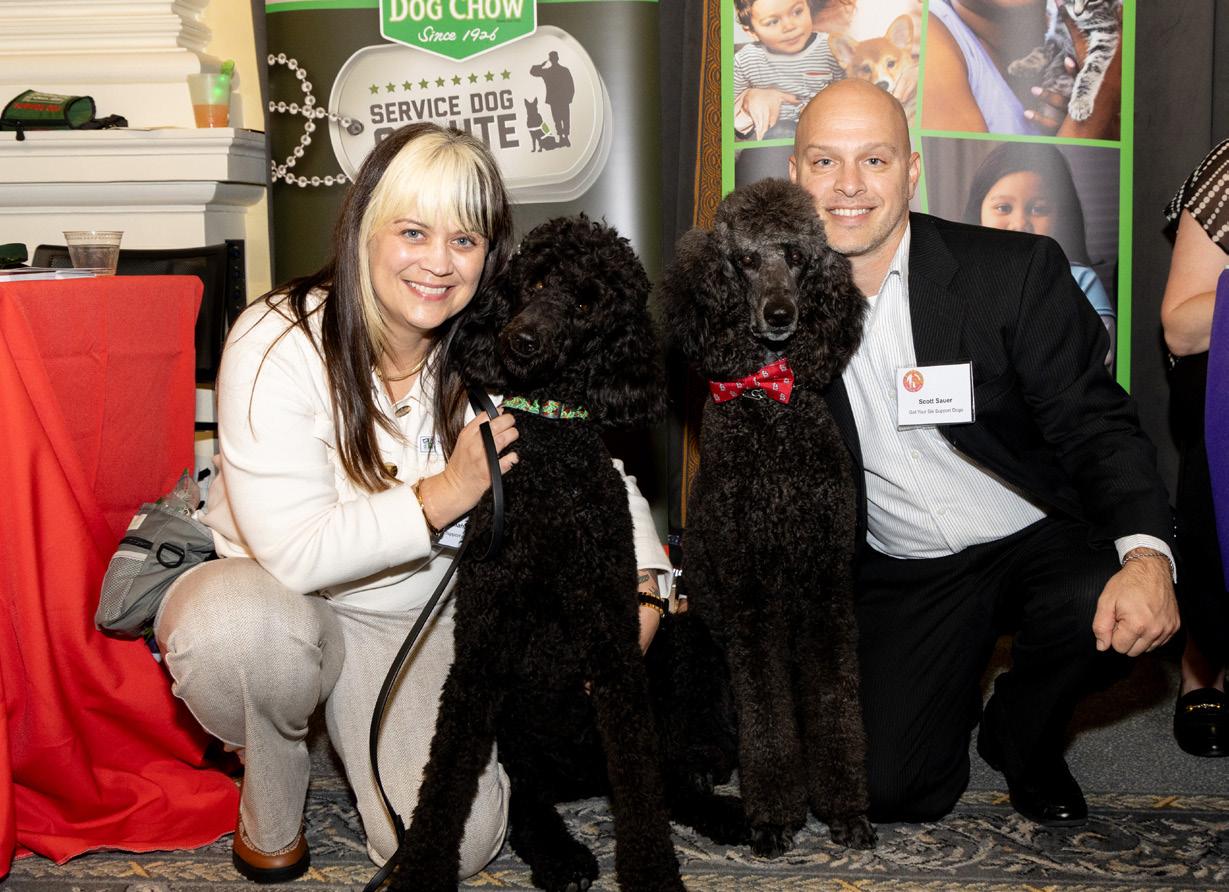





HABRI is a not-for-profit organization that funds innovative scientific research to document the health benefits of companion animals; educates the public about human-animal bond research; and advocates for the beneficial role of companion animals in society.
OUR VISION:
The human-animal bond is universally embraced as an essential element of human wellness.
OUR MISSION: Advance, through science, education, and advocacy, the vital role of the human-animal bond in the health and well-being of people, pets, cultures, and communities.
Dear Colleagues,
The profound connection between people and animals is a cornerstone of healthy and thriving communities. We see the transformative power of the human-animal bond every day—in the joy pets bring to families, the healing comfort they offer to those in need and the sense of purpose and love they inspire. This bond is more than an emotional connection; its benefits for our physical, mental and social health are documented by scientific research. When we understand the science of the human-animal bond, we amplify its power as a force for good that enriches lives and strengthens society.
The Human Animal Bond Research Institute (HABRI) plays a pivotal role. Through groundbreaking research, education and advocacy, HABRI brings the human-animal bond to the forefront of conversations about health, well-being and community. HABRI’s work has laid the foundation for public policies and programs that recognize and support the integral role of pets in our lives.

Looking ahead, we have a shared vision: a future where every person, regardless of their circumstances, can experience the benefits of the human-animal bond. Expanding access to pets and human-animal interaction in society is critical to achieving this goal. Together, we must continue to innovate, support and grow programs that make a difference—such as pet fostering initiatives that improve outcomes for pets and people in the sheltering system. By creating pathways for more families to welcome pets into their homes, we can transform lives, reduce shelter populations and nurture the human-animal bond in meaningful ways.
As you read about HABRI’s impactful work in this report, I hope you will share my optimism for what lies ahead. The partnerships between HABRI and its many partners across the pet care space show what is possible when we work together to advance the human-animal bond. Together, we can ensure a brighter future where pets are recognized as essential to health and happiness—and where every individual has the opportunity to experience the unconditional love that only pets can provide.
If you share our unwavering dedication to pet health and welfare and to advancing the human-animal bond, I invite you to join us in creating a bright future for people, pets and the communities where they live.
Sincerely,
Susanne Kogut Chair, HABRI Board of Trustees
SUSANNE KOGUT
Chair
President, Petco Love
VIC MASON
Secretary
President, World Pet Association (WPA)
OLIVER KNESL
Medical Director & Lead, Global Commercial Development, Zoetis

AIMEE GILBREATH
Vice Chair
President, PetSmart Charities
CARRIE DEVERELL
Vice President, Global Head of Science and Corporate Affairs, Mars Petcare
EUGENE O’NEILL
CEO, North American Veterinary Community (NAVC)
PETE SCOTT
Treasurer
President and CEO, American Pet Products Association (APPA)
JANET DONLIN, DVM
CEO, American Veterinary Medical Association (AVMA)

Play a leading role in the advancement of human-animal interaction science, focusing on research with real-world impact. HABRI has become one of the leading private funders of humananimal interaction research, supporting research all over the world.

• Research proposals from 30+ countries and 300+ institutions worldwide.
• Actionable, translational research leading to better health for: veterans, older people, children with autism and families.

Drive policy changes that support the human-animal bond and strengthen the role of companion animals in society.
HABRI engages in research-based advocacy, working to remove barriers so that everyone can benefit from the human-animal bond.
• HABRI and its partners have developed persuasive data, tools and resources to advocate for solutions that create more pet-inclusive housing, keeping pets and people together.
• HABRI is demonstrating the link between the human-animal bond and public health, advocating for policies that support health and wellness for people and pets.
• Pet ownership saves the U.S. health care system $22.7 billion every year.
• Pet Week brings the power of pets to Capitol Hill, delivering the message to our elected representatives that pets are important for human health and quality of life.
• HABRI is leading the effort to pass the People and Animals Well-being (PAW) Act, which would allow Health Savings Account (HSA) and Flexible Spending Account (FSA) funds to be used for veterinary care and pet health insurance. The PAW Act would promote the health and well-being of people, pets and service animals by increasing the ability of families to care for their animals.

Partner with a broad alliance of companies and organizations to advance the human-animal bond as a vital component of personal wellness and public health.
HABRI not only brings together a wide-ranging group of pet care leaders, but it is also developing new partnerships to advance the human-animal bond in society.
• The HABRI Spring Policy Forum brings together researchers, human health practitioners, the pet care community and public policy experts to serve as a springboard for collaborations in research, practice and policy on the important role of companion animals in society.
• The Human Animal Bond Innovation Awards recognize companies and organizations outside the pet space with innovative programs and initiatives that advance the human-animal bond and create a more pet-friendly world.


Serve as the leading global information source and educator on the human-animal bond. HABRI is the leading source of information on the human-animal bond, with research-based education and content.
• Human-Animal Bond Certified has become the leading certification for animal health professionals looking to engage with their clients through communication and the science of the human-animal bond.
• HABRI survey data shows a universal commitment to the human-animal bond across cultures and communities and brings data to the challenges we face in creating petinclusive practices and policies.
• HABRI materials have been translated into five languages to bring the science of the bond to a growing international audience.
As one of the largest funders of human-animal interaction research, HABRIfunded research projects have contributed to increased knowledge about the health benefits of the human-animal bond. HABRI has funded more than $3 million in scientific research investigating the health benefits of the humananimal bond, including 57 innovative research projects. This work has resulted in over 40 academic publications, with many more on the way. HABRI has received proposals from over 300 different institutions around the world, representing six continents and more than 30 countries.
• Service dogs are an effective complementary treatment for military veterans with post-traumatic stress, reducing stress, depression and social isolation.1
• The presence of classroom pets can improve social skills and competence for children and has the potential to decrease problem behaviors in the classroom.2
• Shelter cat adoption is associated with greater empathy and less separation anxiety for children with autism, along with fewer problem behaviors.3
• Children in dog-owning households have higher pro-social behaviors than children from non-dog-owning households. Dog ownership is associated with positive social-emotional development, particularly among families who walk or play with their dog more often.4
• Fostering a shelter cat can alleviate loneliness and improve mental health for older adults living independently alone. Removing perceived barriers to pet ownership can help older adults live healthier, happier lives and also spur the adoption of shelter cats into loving homes..5
[1] O'Haire, Marguerite E., and Kerri E. Rodriguez. "Preliminary efficacy of service dogs as a complementary treatment for post-traumatic stress disorder in military members and veterans." Journal of consulting and clinical psychology 86.2 (2018): 179. [2] McCullough, A., Ruehrdanz, A., Garthe, R., Hellman, C., and O’Haire, M., (2019) Measuring the Social, Behavioral, and Academic Effects of Classroom Pets on Third and Fourth-Grade Students. Human Animal Interaction Bulletin. Advance online publication. [3] Carlisle, G. K., Johnson, R. A., Wang, Z., Bibbo, J., Cheak-Zamora, N., & Lyons, L. A. (2020). Exploratory study of cat adoption in families of children with autism: Impact on children's social skills and anxiety. Journal of Pediatric Nursing, 58, 28-35. [4] Wenden, E. J., Lester, L., Zubrick, S. R., Ng, M., & Christian, H. E. (2020). The relationship between dog ownership, dog play, family dog walking, and pre-schooler social-emotional development: findings from the PLAYCE observational study. Pediatric Research, 1-7. [5] Sanderson, Sherry L., et al. "The Impact of Cat Fostering on Older Adult Well-Being and Loneliness: A Feasibility Study." The Journals of Gerontology: Series B 79.1 (2024): gbad140.
Nophar Geifman, M Med Sc, PhD, FHEA
Professor of Health and Biomedical Informatics, The University of Surrey
This study will conduct an in-depth analysis of HABRI questionnaire data, applying methods in machine learning and data analytics, coupled with complementary data from human cohort studies, to identify the factors most strongly associated with, and most predictive of, the human-animal bond, as well as to better stratify pet parents and gain a better understanding of the human-animal bond and its relationship with health. Researchers will rely on these data-driven insights to design and propose the deployment of a new survey within the UK-Biobank, a 500,000-person study on health and well-being.
Carri Westgarth, BSc MPH PhD PGCert FHEA ABTC-CAB
Chair in Human-Animal Interaction, University of Liverpool
This project will conduct in-depth face-to-face interviews with owners of small ‘furry’ pets (hamsters, rabbits, rats, etc.) to examine perceptions and experiences of impacts on owner well-being. A longitudinal cohort study will also be conducted with 450 prospective adopters of small mammal rescue pets, measuring participant well-being at 0, 1, 3 and 6 months after adoption. The researchers expect to find that adoption of small mammal rescue/shelter pets leads to positive changes in health outcomes.

THERAPY DOG WELFARE: EXPERIMENTAL ANALYSIS OF INDIVIDUAL BEHAVIORAL PREDICTORS FOR SUITABILITY AND CHOICES WITHIN AAI
Alexandra Protopopova, PhD, CAAB
Associate Professor, University of British Columbia
This study will assess therapy dogs’ preferences for different types of animal-assisted activities, aiming to uncover behavioral predictors of engagement through psychometric assessments and performance in socio-cognitive tasks. Researchers expect that therapy dogs will exhibit distinct preferences for different activity levels and the degree of direct interaction with people within the AAI context, with certain personality characteristics predicting these preferences. This study will also plan to disentangle the effect of therapy-specific dog training on the displayed preferences by replicating the experiment with pet dogs.
IMMEDIATE EFFECTS
B. Caitlin Peters, PhD, OTR/L
Assistant Professor, Colorado State University
This study will evaluate the immediate effects of mounted versus unmounted human-equine interactions on physiological and behavioral indicators of self-regulation in autistic youth. In this randomized crossover trial, 24 autistic youth ages 6-16 years old will participate in three different conditions:
1. riding a horse,
2. grooming a horse, and
3. grooming a large stuffed horse (control condition).
Outcomes include heart rate variability, electrodermal activity and salivary cortisol before, during and after the human-equine interaction. Parents will report on self-regulation behaviors 24 hours after the interaction. This study aims to guide practice for the differential use of mounted vs unmounted human-equine interactions based on individual needs and inform the development of completely unmounted equine-assisted services for this population.


Kevin Morris, PhD
Research Professor, University of Denver
Post-traumatic stress disorder (PTSD) is a common mental health challenge that can happen after a traumatic experience, and most research is focused on improving treatments. One relatively new approach is considering post-traumatic growth, or positive shifts that sometimes occur after trauma. This project explores how pairing service dogs with veterans with PTSD, and the bonds that result from these pairings, might lead to greater post-traumatic growth and, therefore, greater thriving after trauma. This study sits within a broader ongoing research project aimed at understanding how the health and well-being of both military veterans with PTSD and their service dogs are impacted by their pairings.
Jillian T. Teo, PhD Candidate University of Wollongong
This study will investigate the changes in heart and brain activity occurring in university students during interactions with therapy dogs and aims to better understand the mechanisms behind the benefits of human-dog interactions on human health and wellbeing. The study combines measurements of heart and brain activity and hypothesizes that therapy dog interactions will lead to greater relaxation compared to standard relaxation methods, which will inform future interventions and help shape policies to optimize student health.
Kristen Davis Moore, PhD
Campbell Family Small and Companion Animal Program Faculty, Oregon State University
In this study, youth and their family cats will take part in a 12-session youth-cat training program that is focused on positive youth development with active learning activities on fear-free cat handling and care. This project will employ a multiple baseline pseudo-randomized control (RCT) model to conduct within- and between-group evaluations to assess the youth-cat training program and its relative value compared to a waitlist control group. Researchers will use a combination of validated self-report and behavioral measures to evaluate program outcomes with a focus on building sustainable social support. The study aims to demonstrate that supporting youth-cat partnerships could significantly improve both youth and cat health and quality of life.
HABRI has conducted survey research on timely topics related to pet ownership and the human-animal bond, bringing data to the discussion about improving pet health and supporting pet-inclusive policies where we live, work and play.

• 82% of HR professionals have seen/heard firsthand employee mental health benefits of pet ownership and 81% believe pets can improve employee mental health – this rises to 95% for Gen Z HR professionals.
• 87% of HR professionals believe offering pet insurance is a good way for the company to show care and concern for employees and their families – this rises to 91% for senior leaders specifically.
• HR professionals who are aware of human-animal bond scientific research are significantly more likely to be interested in offering pet insurance to employees, representing 85% of those surveyed.
• The human-animal bond is valued and recognized among pet owners across all countries and cultures.
• 98% of pet owners across the globe have experienced at least one positive health impact from pet ownership.
• Highly bonded pet owners are significantly more likely to provide their pet with preventive and therapeutic veterinary care.
• The human-animal bond is universally strong among all ethnicities.
• Pets are a force for good; 75% of pet owners of color agree that pets help bring people together from different walks of life.
• A concerted effort to increase diversity in the pet care ecosystem and a sustained effort to create a more welcoming environment will boost access to pet care and help overcome challenges faced by pet owners of color.


• Pet-friendly rental housing continues to be a barrier for pet owners throughout the United States.
• 72% of residents say that pet-friendly housing is hard to find and 59% say pet-friendly housing is too expensive.
• 92% of housing providers who say they are pet-friendly place some restrictions on the type, number, breed or weight of pets.
• If pet restrictions were lifted on their rental housing, 35% of non-pet-owning residents would get a pet, and 33% would get an additional pet.
• 87% of pet owners report their mental health has improved due to pet ownership.
• 22% of pet owners have had a pet recommended for their health by a doctor or therapist.
Survey of HR Professionals on Pets & Pet-Friendly Policies in the Workplace. HABRI-OnePack by PetPartners. (2024)
International HAB Survey HABRI-Zoetis. (2021-2023) International Survey of Pet Owners & Veterinarians.
Survey of Pet Owners of Color HABRI-Petco Love. (2021) Understanding the Role of Race and Ethnicity in Pet Ownership and Care.
Pet-Inclusive Housing Survey HABRI-Michelson Found Animals. (2019) Pets and Rental Housing in the United States.
HABRI Benchmark Survey of Pet Owners HABRI. (2021) Benchmark Survey of Pet Owners.

One in five pet owners have had a pet recommended by a doctor or therapist for better health.

HUMAN ANIMAL BOND INNOVATION AWARDS

PRESENTED BY

The Human Animal Bond Innovation Awards recognize individuals, companies and organizations doing innovative work to advance the human-animal bond and create a more pet-friendly society.
In 2024, HABRI received 67 nominations – a 37% increase from the year prior.





Mental Health & Companion Animals
In 2024, we introduced a new flagship event – the HABRI Spring Policy Forum. Hosted in Washington, D.C., the first Forum was focused on moving society toward more widespread awareness of the science behind the humananimal bond and the important role of companion animals for better mental health. The event was attended by researchers, policymakers, including a member of Congress, and mental health practitioners.
In 2025, this forum will focus on the benefits of the human-animal bond for underrepresented and economically disadvantaged communities and how access to pets and the ability to provide them with the care they need can boost public health.

Pet Night on Capitol Hill gives Members of Congress and congressional staff an important opportunity to meet with pet care community leaders to learn about the importance of pet ownership to human health and well-being. In 2024, more than 400 attendees participated in Pet Night on Capitol Hill.
Representatives Claudia Tenney (NY-24) and Deborah Ross (NC-2) jointly announced their co-sponsorship of the People and Animals Well-being Act (PAW) Act.
Pet Week on Capitol Hill offers a week-long series of virtual content that shares information about the importance of pet ownership in America and how policies that strengthen the human-animal bond are vital for both people and companion animals.






86% of funding is dedicated to Research and Education Programming
2023 Audited Financial Statements

As a non-profit organization, HABRI relies entirely on donations to support its work to advance the science of the human-animal bond. The strong and continued support of the following companies and organizations makes the work of HABRI possible.


























STEVEN FELDMAN
President sfeldman@habri.org
LINDSEY
Vice President, Research & Operations lbraun@habri.org
SAMANTHA



